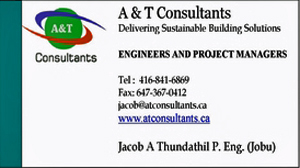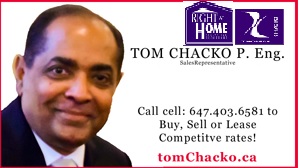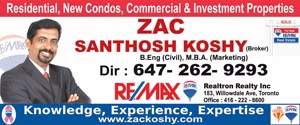Q1) What educational opportunities are available for Engineers in Canada?
Q2) I am planning to pursue Engineering in University. What branch should I go for?
Q3) What is the difference between an Engineer a Scientist and a Technologist?
Q4) I am a new immigrant Engineer in Canada. How should I look for jobs?
Q5) I don’t have a P.Eng designation. Can I work as an Engineer in Canada?
Q6) Is P.Eng essential to find an Engineering job in Canada?
Q7) Iam told by potential employers that they turned my application down because I don’t have a P.Eng. At the same time, one of the eligibility conditions for P.Eng is the successful completion of one-year engineering experience in Canada under the supervision of another Professional Engineer. How can I apply for my P.Eng unless somebody gives me a job in the first place?
Q8) I want to start my own Engineering business.?
Q9) Where can I find a list of Canada’s biggest employers and their contact info.
Q10) Am I eligible to join MEGA?
Q11) What kind of events does MEGA host?
Q12) I am preparing for my P.Eng Ethics and Law Exams. Where can I find the resources?
Q1)What are the opportunities for education for Engineers in Canada? Canada has an excellent higher education system. According to most experts, studying in Canada is more cost effective than that in USA. Most Canadian universities provide graduate programs in Engineering. Engineers who are established in their own fields can either choose an Engineering (MS) or Business (MBA) program.
Apart from the university-based programs, you can also explore diploma/certificate programs at community colleges. Where as university programs are tailored for academic/theoretical excellence, community colleges are more suitable to quickly enhance your skills. College programs not only provide short programs on Engineering subjects, but also provide a host of other general-interest programs like, legal studies, business-communication or even dog-grooming.
Contact the college/university by phone/email and request a brochure. The following link http://www.uwaterloo.ca/canu/ provides a list of websites you can start with. Alternatively, you can visit a college/university and talk to an admission counselor directly.
Q2)I am planning to pursue Engineering in University. What branch should I go for? Deciding on which branch of Engineering to pursue should be a decision based on one’s personal interests, skills, aptitude and the overall employment opportunities available in that particular branch of Engineering. Traditionally, Engineering-practice is divided in to three basic branches. Civil, Electrical, and Mechancial Engineering. All other branches of study are either a combination or subdivision of this major group. The best way to make a decision is to talk to other Engineers who are already active in their particular branch of study. Ask them to describe their typical day at work and see whether it fascinates you. Also explore through them the type and volume of jobs suitable for a fresher from university. Remember that Engineers as they get more experienced, tend to focus on managing other Engineers rather than directly applying formulas and theorems. So, it’s very important you talk/meet with Engineers of varying experience/strata.
Q3) What is the difference between an Engineer a Scientist and a Technologist? A scientist is primarily interested in researching and thus understanding the logic/theory behind a scientific experiment. An Engineer on the other hand is primarily interested in applying that theoretical knowledge to everyday practical use. Although Albert Einstein the Scientist discovered the now famous equation E=mc2, it’s an Engineer who builds and maintains a nuclear reactor, the working of which is based on scientific theories laid out by Einstein. Infact many Engineers pursue doctoral studies/research and later work as distinguished scientists. A Technologist is similar to an Engineer, except he attends a non-degree (diploma or three year) program.
Q4) I am a new immigrant Engineer in Canada. How should I look for jobs? Successful Job-hunting in Canada or for that matter anywhere between the planets Mars and Venus involves three critical components.
Networking
Presentation
Strategy
Networking:
Remember that the style of business and social interaction in Canada might be different from what you were used to. Networking and interacting with people from your own background/community is always the quickest, easiest and most cost-effective way to understand and conquer unfamiliar territory. It’s no surprise that close to 85% of positions in Canada are hired through internal references. Its only the remaining 15% that even gets to a news paper or website. One way to network is joining MEGA. At MEGA you can network with fellow Engineers from your hometown/ university/ community and guide you in the right direction. Get in touch with one of the MEGA committee members, listed on the home page and make arrangements to attend the next event. You can also go to the directory tab on the home page to see the member’s list and their field of activity.
Presentation:
Nothing is more important than how you present yourself. Your presentation is a good tool to compensate and leverage your weakness in the other two areas. Your presentation involves three sub-components:
Resume
Attire
Verbal Communication
Resume : Your resume is infact your ‘Ambassador’ to potential employers. Its represents you and conveys a verbal picture of yourself. Note that in Canada, your ‘Ambassador’ is generally referred to as a ‘Resume’ and not a ‘CV’ or ’biodata’ as it’s called in other countries. For the same reason its very important that you properly ‘tune’ it for the audience. One way of tuning your resume is by using a template for a typical North American resume from a self-help book at a library or bookstore. Once you have a draft ready, discuss it with a select group of Engineers who understand your background/expertise/speciality. Ideally one should have long and short versions of their resumes. A long version is detailed and elaborate. A short version suited for fax/email should be concise and never longer than three pages. The font, style and arrangement should be consistent and clear. A resume should be a dynamic document in the sense you should keep updating it even when you have the most comfortable and well-paid job. Experience shows that in a highly competitive market place, people with the most comfortable and well-paid jobs are more likely to lose their jobs than the rest of us!
Attire:
If your resume gives a verbal image of yourself, it is your attire that gives life to that image. The attire helps to reinforce one’s confidence and communicate one’s appreciation for business etiquettes. You attire in Canada, just as in any other geographic region of the world, is closely linked to purpose and ambient environmental conditions.
Refer the site http://www.career.vt.edu/JOBSEARC/BusCasual.htm for more details on how to dress for success.
Verbal Communication:
Talk clearly, concisely and slowly. Surprisingly, you don’t need to know any more words than your high school English to be successful in the western hemisphere! Don’t use complicated words and idioms in your conversation unless your listener has a PhD in linguistics! . ‘Toastmasters’ is the best way to improve your communication skills. Lose your fears of public speaking and learn skills that will help you be more successful in whatever path you’ve chosen in life. However here are some suggestions. Watching Hollywood movies, TV shows and the like will help you understand the North American style of English communication. Make yourself comfortable with common Canadian slangs eh! However, try not to use them in a typical business environment. Make that old cassette recorder to good use. Record your own 10-second ‘mission statement’. A typical statement may be ‘ I am an electrical Engineer specialized in the design, construction and commissioning of high voltage substations in Asia and Middle-East. Presently I am on the lookout for a project management position in the substation construction industry. I was wondering whether there were any positions I could pursue at GE and particularly in your team’. Record and listen it yourself. Improvise your choice of words, tone, mood and style. Repeat until you are satisfied. You would find the ‘mission statement’ handy in introducing yourself in a telephone call, job interview or even when somebody asks you ‘what do you do?’ Listen to the radio regularly, especially non-music radios like CFRB1010 or CBC 99.1 in Toronto. Read the newspaper but don’t flaunt your knowledge in international affairs, unless the listener knows the precise location of Timbuktu!
Strategy:
This is the component that links and strengthens your networking and presentation. The first task is to identify your strengths and weaknesses in reference to the Canadian job market. Create a plan of action to leverage your strengths. Discuss this plan with your fellow MEGA members, other Engineers and networking contacts. Set mile stones and be prepared to tweak your plan when required. Your goal shall be to interact with as many ‘people’ in the shortest time. The more people you interact, the more leads you get and more the chances of success in your pursuit. No matter what the nature of job, keep yourself occupied. Never sit idle at home for more than a couple of weeks when looking for a job. First of all it’s not practical to ‘hunt’ for jobs for more than a few hours a day consistently for more than a couple of weeks. Secondly, employers and you yourself would feel more confident when already in the work force. Last but not the least; project yourself, keep motivated, driven and focused. Show others your confidence and command in your abilities.
Q5) I don’t have a P.Eng designation. Can I work as an Engineer in Canada? In Canada, engineering is a regulated profession. This means that by law, no one can practice the profession of engineering without a license. Having said that, you can still perform Engineering work under proper supervision. http://www.ccpe.ca/e/index.cfm provides links to provincial organizations and resources for immigrant Engineers.
Q6) Is P.Eng essential to find an Engineering job in Canada? The short answer is NO. However, it does depend on the roles and responsibilities of a specific job and industry. Its been observed that P.Eng is not a requirement/merrit in the software/IT industry. However, a P.Eng helps in the civil, electrical and mechanical Engineering fields. Usually the job description clearly states whether a P.Eng is required for a particular position. If you are applying for the job of a Chief Engineer, you better have a P.Eng. However, if you are applying for the job of CEO, you probably don’t need a P.Eng.
Q7) I am told by potential employers that they turned my application down because I don’t have a P.Eng. At the same time, one of the eligibility conditions for P.Eng is the successful completion of one-year engineering experience in Canada under the supervision of another Professional Engineer. How can I apply for my P.Eng unless somebody gives me a job in the first place? This is where you have to enhance your potential employer’s confidence in your skills/qualifications. Convey your knowledge in standards/codes/practices commonly followed in Canada. If you are not well versed in Canadian standards/codes/practices, make every effort to read and understand them. Arrange a certificate from a prominent Canadian university comparing your credentials with that of a Canadian program. University of Toronto has one such program.
Q8) I want to start my own Engineering business. Check this site for help on how to move forward. The links to the Ontario provincial website tells you all you need to know with regards to the legal side of things (structure, ownership, liability, labor rules , taxes etc). Checkout this site to help you create a business plan. Check this site for ideas for your new venture.
Q9) Where can I find a list of Canada’s biggest employers and their contact info Checkout Macleans magazine’s annual survey. Also check at the local library. Some libraries even gives you a printout based on your search criteria.
Q10) Am I eligible to join MEGA According to the MEGA constitution, any graduate/under-graduate Engineer, Architect or student of Malayalee/Kerala origin, presently residing in Canada/Ontario is eligible for MEGA membership.
Q11) What kind of events do MEGA host? MEGA hosts a combination of professional and cultural events through the calendar year. The professional events consist of technical seminars, industrial tours and factory visits. Cultural/Entertainment events consist of summer picnics, annual entertainment night, sporting events and potluck dinners.
Q12) I am preparing for my P.Eng Ethics and Law Exams. Where can I find the resources? MEGA has a huge binder consisting of previous years question papers, reference books, study notes and other self help guides. Contact any committee member to arrange for the binder. In case you have other resources you may want to contribute to MEGA, get in touch with a committee member.















